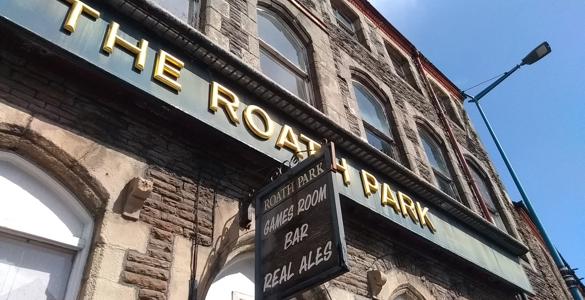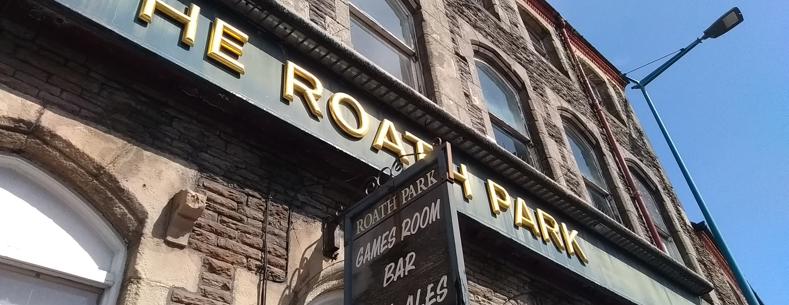In September 2020, the owner of the Roath Park pub in Cardiff, applied to the local planning authority for its demolition. Local groups and elected representatives began campaigning to protect this historic building, whilst Cardiff Council Leader Huw Thomas said he was “disappointed and frustrated” that the authority had “no grounds to stop demolition”. Local people seemed to value this Victorian pub in a way that its owners did not, and the planning system did provide the tools to support. What can people do when local buildings they care about are under threat?
Protection for buildings and areas of “special architectural and historic interest”
A common route for campaigners trying to protect old buildings is to try to get their historic value acknowledged by listing or inclusion in a conservation area. But these systems are focused on the fabric of the buildings or historic interest, and not the value they have to the local community.
The Welsh Government has a legal duty to maintain a list of any buildings which meet its published criteria as being of “special architectural or historic interest”. Once listed, these buildings have enhanced protection under the planning system: an application for the demolition of a listed building should only be approved in exceptional circumstances and as an option of last resort.
Where local authorities feel a whole area is of special architectural or historic interest, they can designate it a conservation area. This also restricts demolition. Local authorities should generally favour retaining a building in a conservation area where it makes a positive contribution to the area, even if it is unlisted. Where it does not make a positive contribution, permission for demolition should not normally be granted without acceptable plans for the reuse of the site.
But buildings valued by the community often don’t meet the high bar for listing or inclusion in a conservation area. In Cardiff, campaigners have previously sought designations for the Vulcan Hotel – a Victorian pub – and Guildford Crescent – a Victorian terrace – to prevent their demolition. Both were unsuccessful. And in Porthmadog, art deco cinema the Coliseum was demolished after Cadw turned down a request to list it.
Local authorities can develop local lists of buildings that don’t meet the national listing criteria. But this does not introduce a requirement for full planning permission – for example for their demolition.
Following the failure to protect the Vulcan in 2010, the Senedd’s Petitions Committee felt the existing legal and policy framework for protecting community assets was insufficient, and called for new rules “to protect buildings which are important for social and cultural reasons”.
Generally, a building which is not listed or in a conservation area can be demolished without the need for planning permission, through what are known as Permitted Development Rights. It is possible for a local authority to remove these rights through an “Article 4 direction”, meaning that full planning permission would be required for demolition.
In England, permitted development rights for demolition of pubs were withdrawn in 2017. Consumer group the Campaign for Real Ale is pressing for the same changes in the law to be made in Wales
Community ownership: additional rights for communities in England and Scotland
One route to saving a building is to stop its owners knocking it down. Another is to place it into the ownership of the people who want to save it.
Between 2001 and 2020 Wales lost about a quarter of its pubs, similar to the UK as a whole. Communities reluctant to call closing time on their locals have responded by purchasing them, often through community share offers.
In the summer of 2021 a campaign raised £458,400 to reopen the Ty’n Llan in Gwynedd. Music venues, which have similarly closed in large numbers, have also used community share offers to avoid closure, such as Le Public Space in Newport.
But in England and Scotland communities looking to buy buildings they care about have a favourable position compared to private bidders, as a result of legislation that so far has not been replicated in Wales.
Part 5 Chapter 3 of the Localism Act 2011 requires district and unitary councils in England to maintain a list of assets of community value, which can be either land or buildings, nominated by local community groups or parish councils. When these assets come up for sale or change of ownership, the Act gives local community groups the time to develop a bid and raise the money to bid for the asset when it comes on the open market. They do not prevent an owner demolishing a building. These provisions are known as the community right to bid. These provisions extend to England and Wales, but the Welsh Government has not commenced them with regard to Wales.
Scotland had earlier introduced a community right to buy in the Land Reform (Scotland) Act 2003. Certain classes of community body are permitted to register an interest in a piece of land or property. Should the owner decide to sell this asset, the community body has first-refusal on its purchase. Should the parties fail to agree on a price, this can be set by an independent valuer.
The Welsh Government consulted in May 2015 on either commencing the Localism Act provisions or introducing an alternative scheme in Wales, or doing neither. A Written Statement in December 2015 indicated support for some form of scheme from the consultation. The Welsh Government then expressed cautious support for commencing the Localism Act 2011 provisions following the 2016 Senedd election. This is yet to happen.
The Welsh Government’s Community Asset Transfer programme provides some opportunities for communities to take on former public sector assets. And although they have no additional statutory rights, communities in Wales can apply to the £5 million Community Asset Loan Fund for loan finance to bring property into community ownership. Funding is also available for upgrading community facilities through the Community Facilities Programme.
Some of the “least empowered” communities “on this island”
A recent report published by think-tank the Institute of Welsh Affairs (IWA) said that communities in Wales “appear to be some of the least empowered on this island”. What limited community empowerment they did find, “seems to be entirely driven by a top-down approach”. It has called for a Community Empowerment Bill to establish a register of community assets, and give communities a statutory first right of refusal when these assets are proposed for sale or transfer, as well as other support such as enhanced funding for communities.
Responding to a recent debate on community assets, Lee Waters MS, Deputy Minister for Climate Change, said he was “very keen to seek out cross-party consensus for the elements” of the IWA report as “this is an area where there is much agreement”.
In November 2021 it was reported that the Roath Park pub could avoid demolition if the owner received an offer that made “good financial sense”. It could yet be saved for the community, but aside from the possibility of some grant funding for an interested community group, this will largely be a matter for the current owner and the free market.
Article by Robin Wilkinson, Senedd Research, Welsh Parliament






